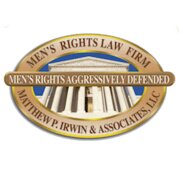Best Child Abuse Lawyers in Cape Coral
Share your needs with us, get contacted by law firms.
Free. Takes 2 min.
Free Guide to Hiring a Family Lawyer
List of the best lawyers in Cape Coral, United States
About Child Abuse Law in Cape Coral, United States
Child abuse law in Cape Coral, Florida, governs how suspected abuse, neglect, or abandonment of minors is reported, investigated, and resolved through both the child-welfare and criminal justice systems. Matters in Cape Coral are handled under Florida state law, administered locally through agencies such as the Florida Department of Children and Families - and through law enforcement in Lee County. Cases can involve parallel tracks - a child-protective investigation and a criminal investigation - and may lead to dependency court proceedings, criminal charges, civil protective orders, custody disputes, or termination of parental rights depending on the facts and findings.
Why You May Need a Lawyer
Child abuse matters are emotionally and legally complex. You may need a lawyer if you are:
- The accused parent, caregiver, or family member facing criminal investigation or charges for alleged abuse or neglect. A criminal defense lawyer can advise on constitutional rights, evidence preservation, and courtroom defense strategies.
- The subject of a child-protective services investigation with a risk of your child being removed from the home or a dependency petition being filed. A lawyer with experience in dependency and family law can guide you through hearings, reunification plans, and legal rights in court.
- A parent or person seeking protection for a child, such as filing for a protective order or pursuing emergency custody. An attorney can help you gather evidence, prepare petitions, and represent you at hearings.
- A relative or foster caregiver involved in placement decisions, or a prospective guardian concerned about custody or visitation rights. Counsel can clarify your legal status and options.
- Facing potential civil liability in addition to criminal exposure, such as a civil suit by a child or guardian. An attorney can evaluate potential defenses and insurance coverage issues.
Local Laws Overview
Key legal frameworks and processes that are particularly relevant in Cape Coral include:
- Florida Statutes Chapter 39 - Child Protection and Welfare: Governs investigation of abuse, neglect, dependency proceedings, removal and reunification standards, and termination of parental rights.
- Florida Statutes Chapter 827 - Child Abuse, Abandonment, and Neglect: Defines criminal offenses related to physical abuse, sexual abuse, neglect, and exploitation of minors, and sets out criminal penalties.
- Mandatory Reporting Requirements: Florida law requires certain professionals - including medical personnel, teachers, childcare workers, law enforcement, and social-service providers - to report suspected child abuse or neglect to the Florida Abuse Hotline or local law enforcement.
- Investigation and Removal Standards: When a report is received, DCF or law enforcement may investigate. If investigators believe a child is in immediate danger, they may seek emergency removal or place the child temporarily with a relative or in foster care. Initial removal is based on probable cause; longer-term findings and adjudications involve higher standards.
- Dependency Court: If the department files a dependency petition, the case proceeds in circuit court - in Lee County that is the 20th Judicial Circuit - where the court determines whether a child is dependent and what services, placements, or reunification steps are required.
- Criminal Process: Separate from dependency proceedings, criminal charges require proof beyond a reasonable doubt. Evidence-gathering, arrest, arraignment, plea negotiation, and trial follow standard criminal procedure.
- Protective Orders and Custody Remedies: Courts can issue emergency temporary custody orders, injunctions for protection, or civil remedies aimed at protecting a child while legal processes continue.
Frequently Asked Questions
What should I do immediately if I suspect a child is being abused in Cape Coral?
If you suspect abuse or neglect, call local law enforcement or report to the Florida Abuse Hotline as soon as possible. If a child is in immediate danger, call 911. Try to provide clear details about the child, location, nature of suspected abuse, and any identifying information about alleged abusers. Avoid confronting suspected abusers in ways that could increase danger for the child.
Who is required to report suspected child abuse in Florida?
Certain professionals are mandatory reporters - including doctors, nurses, teachers, childcare workers, law enforcement officers, mental-health professionals, and social workers. However, any person who suspects child abuse is encouraged to report it. Failure of a mandated reporter to report can lead to criminal or professional consequences.
What happens after a report is made to DCF or law enforcement?
After a report, DCF or law enforcement will assess whether the allegation meets criteria for an investigation. Investigators may interview the child, family members, witnesses, and professionals. They may also inspect the home and seek medical or forensic evaluations for the child. If immediate danger is found, the child may be temporarily removed pending a shelter hearing or other court action.
Can my child be removed from my home right away?
Yes - if investigators or law enforcement determine the child is in imminent danger, they can remove the child without parental consent and seek temporary custody from the court. The state must normally demonstrate probable cause for emergency removal, and a shelter hearing will be scheduled quickly to review the removal.
What is the difference between a DCF investigation and criminal charges?
DCF investigations focus on child safety and welfare and can lead to dependency cases, services, or administrative findings. Criminal investigations focus on whether a crime occurred and whether criminal charges should be filed. Outcomes in one process can affect the other, but each has different standards of proof and different goals.
How long do dependency cases usually take in Lee County?
Timelines vary with case complexity and court schedules. Initial shelter hearings happen quickly after removal. Adjudication, disposition, and subsequent review hearings can take months or longer, especially if services, reunification, or termination of parental rights become issues. Working with an attorney helps navigate timelines and meet court requirements.
Can a parent regain custody after a child is removed?
Often yes - the dependency process is designed to pursue reunification when safe and possible. Parents typically receive a case plan with required services like counseling, parenting classes, or substance treatment. Successful completion of court-ordered services and demonstrated improvement can support reunification, though each case depends on the facts and court findings.
What are the potential criminal penalties for child abuse in Florida?
Penalties depend on the nature and severity of the abuse. Convictions can range from misdemeanors to first-degree felonies, with potential prison time, fines, probation, and mandatory registration or counseling. Certain aggravated offenses, such as sexual abuse or abuse causing serious bodily injury, carry more severe sentences.
Should I talk to investigators without a lawyer if I am accused?
You have the right to speak, but you also have the right to remain silent and to consult an attorney. Speaking without counsel can risk providing statements that may be used in criminal or dependency proceedings. If you are accused, contact an attorney as soon as possible before giving detailed statements or consenting to unnecessary searches.
How do I find a lawyer experienced in child abuse, dependency, or juvenile matters in Cape Coral?
Look for attorneys who handle both dependency and criminal defense matters or work with firms that provide both specialties. Ask about experience in the 20th Judicial Circuit and outcomes in similar cases. You can contact local bar association referral services, legal aid providers, or experienced private attorneys for consultations. If you cannot afford a lawyer and face dependency or criminal charges, you may be entitled to a court-appointed attorney.
Additional Resources
Below are local and state resources that can assist with reporting, support, or legal information:
- Florida Department of Children and Families - for reporting suspected abuse and for information on child-protective services and dependency processes.
- Florida Abuse Hotline - the statewide reporting system for suspected child abuse and neglect.
- Lee County Sheriff or Cape Coral Police Department - for immediate law enforcement response and investigations.
- 20th Judicial Circuit - family and juvenile court information for Lee County and neighboring counties.
- Guardian ad Litem Program - court-appointed volunteers who represent the best interests of children in dependency cases.
- Local child advocacy centers and victim services providers - for forensic interviews, counseling, and support for children and families affected by abuse.
- Legal aid organizations and local bar referral services - for help finding attorneys or obtaining free or reduced-fee legal representation when eligible.
Next Steps
If you or a child are in immediate danger - call 911 now. If you suspect abuse, report to the Florida Abuse Hotline or local law enforcement promptly. If you are involved in a pending investigation or have been accused, take these steps:
- Seek legal counsel right away - contact an attorney with experience in dependency, family law, and criminal defense.
- Preserve evidence - keep records, take photos of injuries or hazardous conditions if safe to do so, and retain communications or documents that relate to the matter.
- Follow court and agency orders - attend all hearings, complete required services when ordered, and comply with visitation or protective conditions set by the court.
- Coordinate with service providers - engage with counseling, parenting programs, or substance-treatment services that may be part of a reunification plan.
- Protect the child’s safety - prioritize any necessary safety steps, such as removing a child from dangerous situations or seeking emergency protective orders if needed.
- Ask questions - communicate with your attorney and the assigned caseworker to understand what is required, the timeline, and how decisions are made.
Child abuse matters are among the most serious legal issues families face. Early legal advice, prompt reporting when safety is a concern, and careful cooperation with court-ordered steps can make a critical difference in outcomes for the child and family. Consult a qualified attorney in Cape Coral or Lee County to review the specifics of your situation and to receive guidance tailored to your case.
Lawzana helps you find the best lawyers and law firms in Cape Coral through a curated and pre-screened list of qualified legal professionals. Our platform offers rankings and detailed profiles of attorneys and law firms, allowing you to compare based on practice areas, including Child Abuse, experience, and client feedback.
Each profile includes a description of the firm's areas of practice, client reviews, team members and partners, year of establishment, spoken languages, office locations, contact information, social media presence, and any published articles or resources. Most firms on our platform speak English and are experienced in both local and international legal matters.
Get a quote from top-rated law firms in Cape Coral, United States — quickly, securely, and without unnecessary hassle.
Disclaimer:
The information provided on this page is for general informational purposes only and does not constitute legal advice. While we strive to ensure the accuracy and relevance of the content, legal information may change over time, and interpretations of the law can vary. You should always consult with a qualified legal professional for advice specific to your situation.
We disclaim all liability for actions taken or not taken based on the content of this page. If you believe any information is incorrect or outdated, please contact us, and we will review and update it where appropriate.









